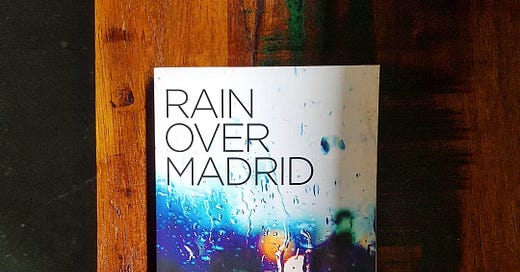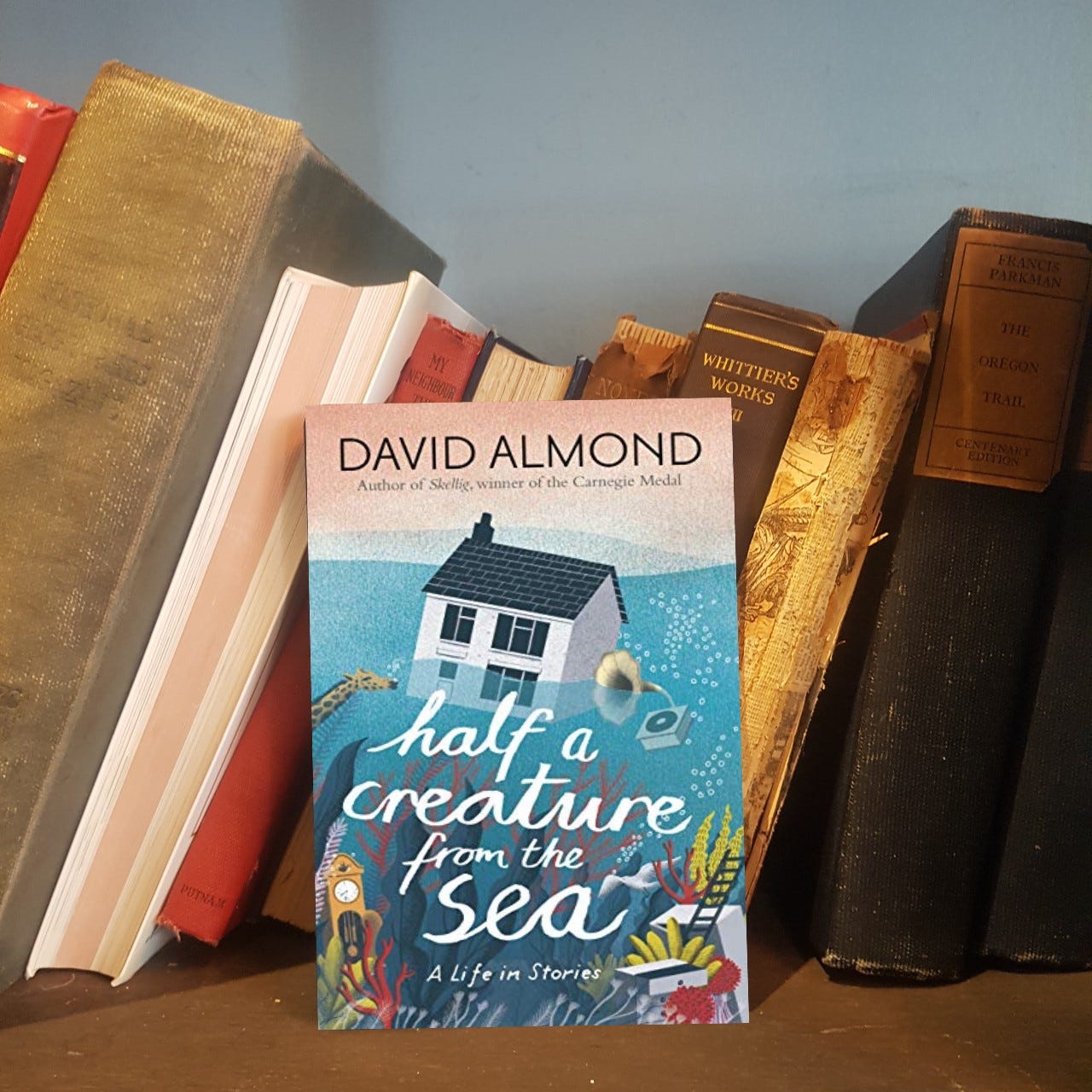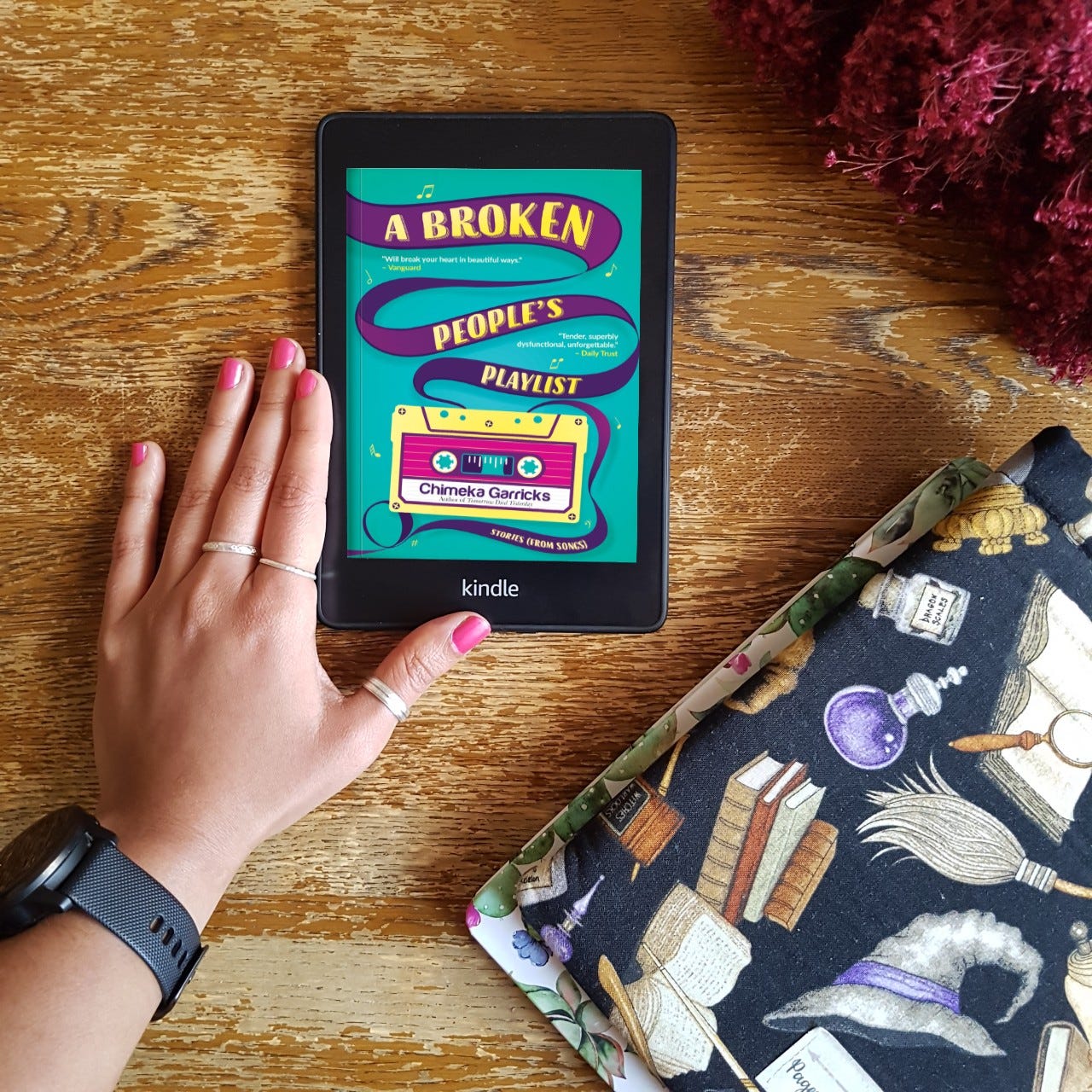This is the third and last of three written-in-advance newsletter issues as the Storyteller shifts to a temporary bi-weekly schedule. The next issue on August 27 will be in real time.
Hi and welcome to the Storyteller!
Do you like linked short story collections, whether loosely woven or more closely entangled? If the answer is yes, you’re in luck, because I’ve got three really good ones to tell you about today 😊
Short stories will always be my first (writing) love, and it's the form, especially micro and flash, but also up to 3000 words, that I keep returning to when I want to go back to storytelling basics, as it were. Since finishing my novelette in 2021, and then my travel micro collection in 2022, it's where I find myself again. Rediscovering my writing muscles in the form that made me first fall in love as a writer. It has also, naturally, translated into me reading more of them, seeking out inspiration, variety, and resonance.
Here are three that I love. (I realised while putting this issue together that all of these collections have a very strong sense of place, and maybe that’s something I’m also seeking or aspiring to in my own writing.)
Rain Over Madrid by Andrés Barba (translated into English by Lisa Dillman)
Rain Over Madrid is a collection of four novellas by Andrés Barba that I picked up at the Jaipur Literary Festival in 2016. Yep, it took me all those years to actually read it, but moving on 😅
Publisher’s blurb:
Andrés Barba is one of Spain’s most prominent literary writers, rightfully included in Granta’s "The Best of Young Spanish-Language Novelists" issue. Rain Over Madrid is his latest work of fiction, now available in English-language translation.
Rain Over Madrid is comprised by four novellas—‘Fatherhood,’ ‘Guile,’ ‘Fidelity,’ and ‘Shopping’—with a common leitmotiv: all of a sudden, someone is finally able to comprehend somebody else’s life. By featuring totally divergent characters in different settings, Barba in these stories tackles issues such as death, the inability to communicate feelings, the sudden eruption of love, fascination for the other, the architecture of desire, and the fear of happiness.
These stories, all taking place in the city of Madrid for large parts, have a clear, lucid style (as much as one is able to glean from a competent translation), with a very sharp eye for detail and the little quirks and foibles that are unique to an individual, yet universal.
Through Barba's insightful portraits of interiority, the stories allow us glimpses of our/other hidden lives and loves and thoughts, allow us brief chances to fully comprehend the other person, whether on the page, or through them, in our lives. It takes all the effort of a lifetime to figure out who someone is, and Barba leaves us wanting more; yet these people exist in full.
There is so much scope in the shorter fiction form, one that I love as both a reader and writer, and here, Barba utilises this beauty and potency to the maximum, elevating the form even further.
My favourite out of the four was ‘Fidelity’, and I see myself revisiting the collection in future.
Sometimes she even believes that acting natural is simply the most sophisticated of orthopedics, a vague cumulus of rehearsed expressions that eventually become reflexes by dint of repetition.
Half a Creature From the Sea by David Almond (illustrated by Eleanor Taylor)
I'd been wanting to read Half a Creature from the Sea: A Life in Stories since I first stepped foot into the Candlewick Press office a couple of years ago as an intern. I admit that it was the gorgeous cover that drew me in, but I stayed for the weird, wonderful stories, and the very unusual memoir-of-sorts of a childhood spent in Felling-on-Tyne, deep in England's North East.
Publisher’s blurb:
May Malone is said to have a monster in her house, but what Norman finds there may just be the angel he needs. Joe Quinn’s house is noisy with poltergeists, or could it be Davie’s raging causing the disturbance? Fragile Annie learns the truth about herself in a photograph taken by a traveling man near the sea. Set in the northern English Tyneside country of the author’s childhood, these eight short stories evoke gritty realities and ineffable longings, experiences both ordinary and magical.
In brief autobiographical preludes, master storyteller David Almond speaks to his own inspiration and shows how all things can be turned into tales, reflecting on a time of wonder, tenderness, and joy.
Once I got attuned to the author's writing style, I enjoyed his interpretations and representations of the quote below:
Stories on the page are so beautifully neat. All that lovely black print; those lovely straight lines and paragraphs and pages. But stories are living things, creatures that move and grow in the imaginations of writer and reader. They must be solid and touchable just like the land, and must have fluid half-known depths just like the sea. These stories take place in the real world - the streets in which I grew, the fields and benches over which I walked. People I know appear in them. But in fiction, real worlds merge with dreamed worlds. Real people walk with ghosts and figments. Earthly truth go hand in hand with watery lies.
The way his stories blend realism with the dreamed world until you're never quite sure what's what, how deeply rooted his stories in the countryside he grew up in, in the language and landscape and the people who shaped his formative years—and yet so far removed from it with the poltergeist who simply wants to be heard and seen, to be at peace and loved; to the girl who wonders at the myths of her own origins; to the lad who believes his dead father's spirit has returned like he'd promised him he would; to the foreign boy from East Germany who's different but teaches the narrator an important life lesson; to the god who visits a garden on a snow day; to the now old man who remembers a childhood day that was the stuff of legends.
Each story had an autobiographical prelude of sorts where the author spoke about his inspirations and gave us tantalising glimpses into his childhood. I'm not usually a fan of author explanations, but here I think it somehow works to create a rich magical experience, to show, like many authors before him have, that “ordinary places can be extraordinary”.
A Broken People's Playlist by Chimeka Garricks
In an interview with Isele Magazine in August 2020, two months after the publication of his sophomore book, a collection of short stories titled A Broken People's Playlist, Nigerian author Chimeka Garricks said,
People can be monstrous but miraculous, misunderstood yet judgmental, capable of great love and mega-assholery at the same time. It is why we are beautiful. And why we need to give a lot more grace to others and ourselves.
Garricks was born in Dublin and raised in Port Harcourt, a city that has an inexplicable hold over his heart like all first loves do, and hence a city where a lot of the stories from the collection are set.
His debut novel was the highly acclaimed Tomorrow Died Yesterday (2010), and he started writing short stories to avoid working on his second novel!
Publisher’s blurb:
A Broken People’s Playlist is a collection of short stories with underlying themes so beautifully woven that each story flows into the other seamlessly. From its poignant beginning in ‘Lost Stars’ a story about love and it’s fleeting, transient nature to the gritty, raw musical prose encapsulated in ‘In The City’, a tale of survival set in the alleyways of the waterside, A Broken People’s Playlist is a mosaic of stories about living, loving and hurting through very familiar sounds, in very familiar ways and finding healing in the most unlikely places.
The stories are also part-homage and part-love letter to Port Harcourt (the city which most of them are set in). The prose is distinctive as it is concise and unapologetically Nigerian. And because the collection is infused with the magic of evocative storytelling, everyone is promised a story, a character, to move or haunt them.
In his author's note that accompanies this collection of stories that are linked, where characters flit in and out of the margins and sometimes take centre-stage in the stories of others, Garricks talks about how unforseen detours can be unexpected saviours. About how destiny and music saved him at a time when he was scraping at the bottom of the creativity barrel, wondering if the first book was all there was, all there ever would be.
Born out of music, that deceptively powerful force, each story’s song grew to form a playlist of people broken, regretful, filled with wishes and what-might-have-beens; victims of timing and circumstance and, sometimes unavoidable, uncontrollable misfortunes, who are seeking redemption in their own ways, and who find temporary belonging, a fleeting peace, spaces for their private grief, and a horizon for love, family, and music.
The writing is lyrical, the characters well-developed, the language and its rhythm unabashedly local (making use of dialects and speech patterns), and the narratives culturally immersive.
You hope that writing this story will help you. (You will wait to find out.)
Who are the short story writers that move you? I’d love to check out unknown-to-me collections, writers, and even single stories, so recommend away!
As always, please feel free send in other recommendations—books, movie, TV shows, authors to interview, ideas of what you’d like me to write on, rants/ramblings/excited monologues, GIFs and memes (especially them) and more. Just drop me a line and turn this into a conversation, even if just to say hi and let me know what you thought of the latest issue 😊 Or share this with someone you think might enjoy it.
Take care and actually “see” you in two weeks when the Storyteller will resume its weekly schedule!
Anu
If you really like the newsletter, please feel free to buy me a coffee: https://ko-fi.com/anushreenande
You can find me on Twitter at @AnuNande (follow for all the football chatter) and on Instagram at @booksinboston.







The first collection seems interesting!